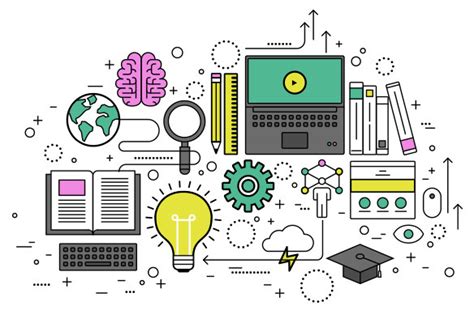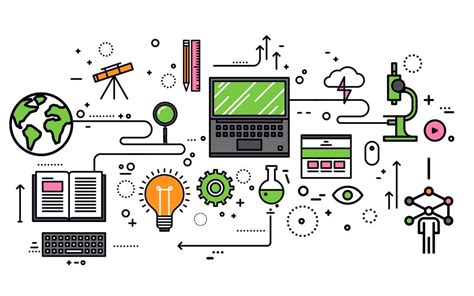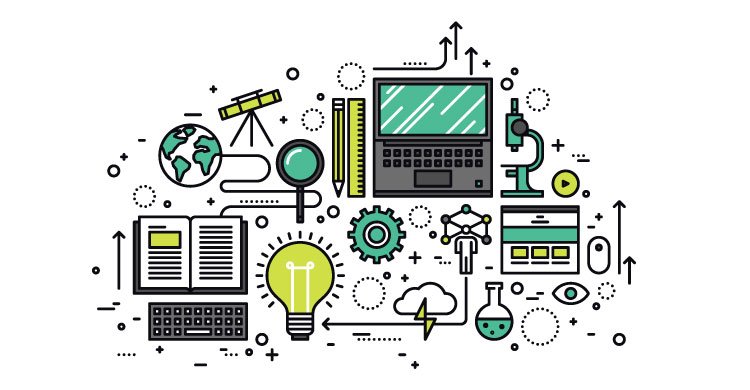Blogging about educational technology, or EdTech, has become a powerful tool for educators to share insights, resources, and innovations that enhance teaching and learning. As the digital landscape continues to evolve, educational technology plays a crucial role in modernizing classrooms and making education more accessible. Through blogging, educators can contribute to the ongoing conversation about EdTech, offer valuable perspectives, and connect with a broader community of professionals. This article explores the importance of educational technology, the benefits of blogging in the field, and offers guidance for educators looking to start their own blogs to support and enrich the learning experience.
Dive deep into this topic alongside electrapk.com
1. Introduction
In today’s rapidly advancing digital age, educational technology, or EdTech, is transforming the way educators teach and students learn. From online learning platforms to interactive tools in the classroom, technology is creating new opportunities for personalized, engaging, and efficient education. One of the most effective ways to share knowledge and stay updated with these innovations is through blogging.
Blogging about educational technology allows educators to share insights, best practices, and valuable resources with a global audience. It opens up dialogue on the latest trends, tools, and methods that can be incorporated into teaching. With more educators turning to blogs to learn about EdTech, it has become a dynamic space for collaboration and professional growth.
Moreover, EdTech blogging enables educators to connect with peers, engage in critical discussions, and showcase their own experiences in integrating technology into their classrooms. Whether it’s reviewing tools, offering step-by-step tutorials, or discussing the future of technology in education, blogging creates a platform for meaningful exchange. In this article, we will explore the benefits of EdTech blogging, provide examples of successful educational technology blogs, and offer tips for educators interested in starting their own blogs.

2. Importance of educational technology
Educational technology, or EdTech, is revolutionizing how we approach teaching and learning. It is no longer just a supplementary tool but a vital component of modern education. By incorporating technology, educators can enhance the learning experience, offering more personalized, interactive, and engaging lessons. EdTech allows for a more student-centered approach, where learners can work at their own pace and access resources tailored to their needs, leading to improved understanding and retention.
One of the most significant advantages of educational technology is its ability to make learning more accessible. Through online courses, virtual classrooms, and digital resources, students from diverse backgrounds and locations can access high-quality education that might otherwise be out of reach. This is particularly important in today’s globalized world, where remote learning and digital literacy are becoming essential skills.
Furthermore, EdTech tools, such as interactive simulations, games, and virtual reality, bring learning to life in ways traditional methods cannot. They enable students to explore complex subjects more deeply and creatively. For educators, technology provides valuable data on student performance, allowing for better tracking of progress and more informed teaching decisions. In summary, educational technology is crucial in shaping a more inclusive, effective, and future-ready education system.

3. Benefits of blogging in education
Blogging in education offers numerous benefits for both educators and learners. For educators, it serves as a platform to share ideas, resources, and teaching methods with a global audience. It allows teachers to reflect on their own practices, stay current with the latest trends in educational technology, and engage with a community of like-minded professionals. By writing about their experiences, educators can enhance their professional development, gaining feedback and insights from others in the field.
For learners, blogs provide access to a wealth of educational materials, offering diverse perspectives on various topics. Blogging also encourages collaboration, as educators can exchange knowledge and collaborate on innovative teaching strategies. Additionally, blogs can serve as a repository of valuable resources such as lesson plans, tutorials, and educational tools, all of which can be easily accessed by both teachers and students.
Moreover, blogging builds a sense of community, fostering communication between educators, students, and even parents. It helps bridge gaps in understanding by creating a space for discussion and exploration of key educational issues. Ultimately, blogging empowers educators to contribute meaningfully to the broader conversation about education, while continuously improving their own teaching practices.

4. Examples of successful educational technology blogs
There are several educational technology blogs that have successfully made an impact in the EdTech community. One prominent example is Edutopia, a well-known platform that provides teachers with innovative strategies, case studies, and research-backed methods for integrating technology in the classroom. EdSurge is another notable blog that offers insights into the latest educational tools, industry news, and reports on the effectiveness of EdTech solutions.
TeachThought focuses on 21st-century teaching and learning, offering educators resources on digital literacy, problem-based learning, and technology-enhanced instructional strategies. Meanwhile, The Innovative Educator blog highlights practical ways to implement EdTech tools to promote student engagement and success, with a focus on personalized learning experiences.
These blogs not only offer valuable content to educators, but they also foster a sense of community and collaboration by encouraging discussion and sharing ideas. By examining these successful examples, educators can draw inspiration for their own EdTech blogs and understand the impact of sharing knowledge in the digital space.
5. Tips for educators on starting a blog
Starting a blog about educational technology can be a rewarding experience for educators, but it requires thoughtful planning and execution. Here are some tips to help educators begin their blogging journey.
First, identify your niche. Educational technology is a broad field, so it’s essential to focus on a specific area that aligns with your expertise or passion. Whether it’s reviewing EdTech tools, sharing classroom strategies, or exploring the latest trends, having a clear focus will attract a dedicated audience.
Next, create consistent and valuable content. To maintain engagement, publish regularly and ensure your posts offer insights, solutions, or practical advice that educators can apply in their own classrooms. Be authentic and reflective—your personal experiences and lessons learned will resonate with your readers.
It’s also important to engage with your audience. Encourage comments and discussions by asking questions or sharing controversial topics that spark conversation. This interaction builds a community around your blog and helps expand your network.
Additionally, invest time in learning about search engine optimization (SEO) and content marketing. SEO will help your blog gain visibility in search engines, while marketing strategies, such as sharing posts on social media, will grow your readership.
Finally, be patient. Building a successful blog takes time, but with persistence and passion, your blog can become a valuable resource in the EdTech community.
electrapk.com
